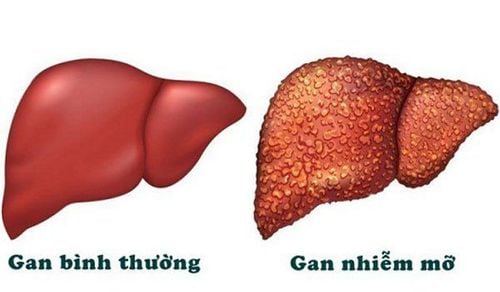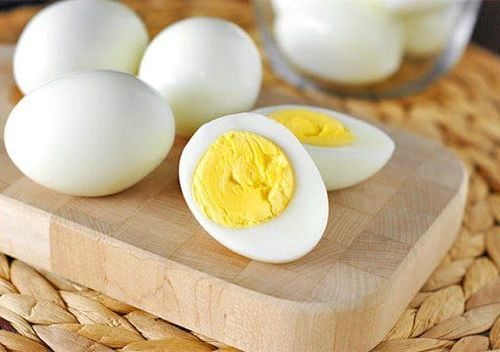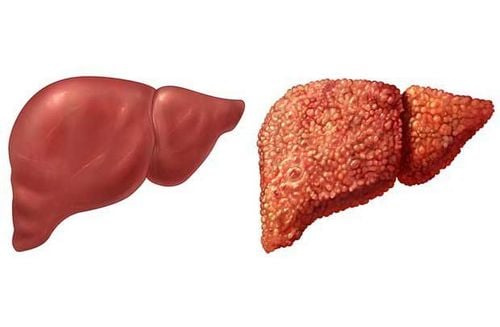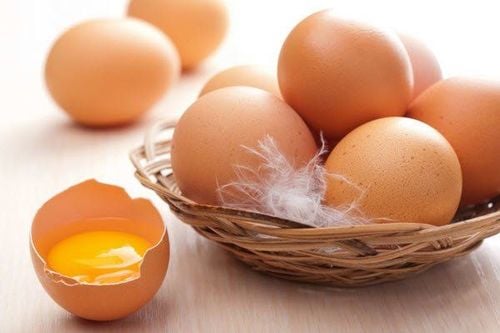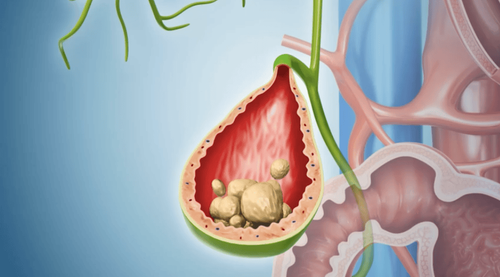Nutrition plays a crucial role for people with cirrhosis, because it directly affects liver health and recovery. Eggs are nutrient dense food, which contain numerous vitamins and minerals. So, is it advisable for people with cirrhosis to include eggs in their diet?
1. What is cirrhosis?
The liver is a large organ, which performs many essential biological functions such as detoxification, storing vitamins and essential substances, boosting immunity, balancing hormones, and supporting digestive system.
Cirrhosis is a chronic disease that long-term liver damage leads to the formation of fibrous tissue in the liver, which cause the reduction of blood flow through this organ and impair its function. Cirrhosis is the final stage of various liver diseases.
Maintaining a healthy diet is essential for people with cirrhosis. Poor dietary habits can accelerate the progression of cirrhosis and may result in fatal complications.
2. Essential Foods for People with Cirrhosis
Protein-rich Foods
- An adult requires approximately 1 gram of protein per kilogram of body weight daily.
- Recommended protein sources: meat, fish, eggs, cereals, and dairy products.
Vitamin-rich Foods
- Fresh fruits and vegetables are rich in vitamins and minerals, which help slow cirrhosis progression and improve overall health.
High-fiber Foods
-Fiber is essential for liver health. It helps the patient detoxify, improve digestion, cleanse the body, and balance nutrients.
-Fiber can be found in green vegetables, beans, grains, and bread.
Beta-carotene-rich Foods
-Carrots are a great source of beta-carotene, a powerful antioxidant that protects the liver from damage and removes free radicals.
Omega-3 Fatty Acids
-Found in salmon, mackerel, sardines, and tuna, omega-3 fatty acids promote digestion and are beneficial for liver health.
Other Recommendations
-Drink 1.5 to 2 liters of water daily to support liver function, detoxify, and improve general health.
3. Foods to Avoid for People with Cirrhosis
Beside taking medication as prescribed by the doctor, people with cirrhosis should also note that they should not eat certain foods to prevent the disease from getting worse.
Animal Fats and Saturated Fats
Consuming animal fat increases the liver's workload, leading to fat accumulation and further liver damage.
Red Meat
Red meat is high in protein metabolized by the liver
Consuming high amount of red meat increasing liver’s workload and worsening its function.
High-cholesterol Foods
Cholesterol can be found in animal organs and egg yolks
High cholesterol levels can burden the liver.
Sugary Foods
Excessive sugar consumption can lead to obesity, diabetes, and other complications.
Limit sugar intake to reduce the burden on the liver and control the progression of liver disease.
Alcoholic Beverages
Alcohol accelerates liver damage, promoting cirrhosis progression and potentially leading to liver cancer.
4. Nutritional Content of Eggs
Eggs are a rich source of high-quality protein, vitamins, minerals, and healthy fats.
On average, 1 egg contains: 72 calories, 4.8 grams of fat, 4 grams of carbohydrates, 6.3 grams of protein, 71 mg of sodium, 69 mg of potassium, 186 mg of cholesterol, 160 mcg of vitamin A, 24.1 mg of calcium.
Egg white: Low in calories (17 calories) and fat-free, it contains over half the egg's protein and is rich in minerals like niacin, potassium, riboflavin and magnesium.
Egg yolk: Contains fewer proteins but is nutrient-dense with vitamins, calcium, folate, omega-3, cholesterol, and fatty acids. An egg yolk contains about 55 calories.
Eggs are a valuable source of high-quality protein, healthy fats, minerals and vitamins. essential nutrients. Eggs are low in calories and suitable for a low-fat, high-protein diet.
5. Can People with Cirrhosis Eat Eggs?
Eggs are generally healthy, but should people with cirrhosis consume them? Many believe the high cholesterol content in egg yolks may negatively impact liver health. According to many experts, people with cirrhosis should not eat too many eggs. Because:
The cholesterol in egg yolks can contribute to fat accumulation in the liver.
Excessive consumption of eggs increases the intake of protein and lipids, burdening the liver.
Restricting egg consumption can help manage conditions such as fatty liver, vitamin A accumulation in the liver, diabetes, hypertension, and lipid metabolism disorders.
Consuming large quantities of eggs, particularly fertilized duck eggs, increases blood cholesterol levels and raises the risks of vascular blockages, stroke, and heart attack.
Eggs are a common dietary item. So, can people with liver cirrhosis consume eggs? They should prefer egg whites over yolks, because:
- Egg whites and yolks have distinct nutritional profiles.
- Egg whites are low in calories, rich in calcium, protein, and selenium (a cancer-preventive mineral), making them suitable for cirrhosis patients.
- Egg yolks contain high amount of cholesterol, which, if consumed excessively, can impair fat metabolism and negatively affect liver function. Cirrhosis patients are advised to avoid egg yolks.
However, there are now many studies that contradict this view. Studies show that:
- Not all cholesterol-rich foods increase cholesterol blood level.
- The liver produces cholesterol daily and adjusts production to balance dietary intake.
- 70% of individuals eating eggs daily experience no significant increase in total or LDL cholesterol. For the remaining 30%, the increase is minimal.
For people with cirrhosis who need to supplement a lot of protein, protein intake from eggs is necessary. Protein in egg yolks contains essential amino acids often deficient in other foods, such as methionine, cysteine, arginine, and tryptophan. Egg whites provide simple, soluble proteins that are easy to digest and absorb.
- People with cirrhosis should consume only 1–3 eggs per week, opt for boiled eggs over fried or scrambled eggs to reduce the fat content.
- Avoid excessive egg consumption to prevent additional liver strain and deterioration.
- Cirrhosis patients in stages 3 and 4 should avoid eggs entirely and substitute with other protein sources.
Diet plays a critical role in managing cirrhosis. While egg consumption in moderation is generally safe, it’s vital to maintain a balanced diet and engage in regular exercise and healthy routines. Consult your doctor for personalized dietary guidance for cirrhosis management.
To arrange an appointment, please call HOTLINE or make your reservation directly HERE. You may also download the MyVinmec app to schedule appointments faster and manage your reservations more conveniently.





